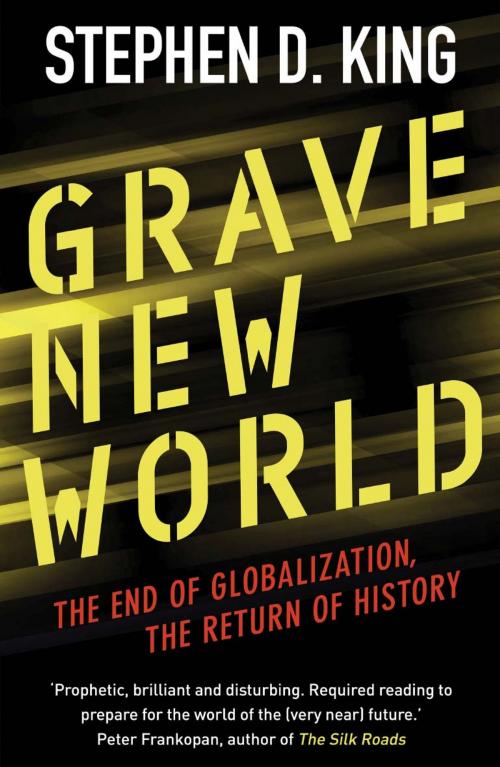Grave New World
The End of Globalization, the Return of History
Business & Finance, Economics, International Economics, Nonfiction, History, World History, Modern| Author: | Stephen D. King | ISBN: | 9780300240078 |
| Publisher: | Yale University Press | Publication: | May 22, 2018 |
| Imprint: | Yale University Press | Language: | English |
| Author: | Stephen D. King |
| ISBN: | 9780300240078 |
| Publisher: | Yale University Press |
| Publication: | May 22, 2018 |
| Imprint: | Yale University Press |
| Language: | English |
A controversial look at the end of globalization and what it means for prosperity, peace, and the global economic order
Globalization, long considered the best route to economic prosperity, is not inevitable. An approach built on the principles of free trade and, since the 1980s, open capital markets, is beginning to fracture. With disappointing growth rates across the Western world, nations are no longer willing to sacrifice national interests for global growth; nor are their leaders able—or willing—to sell the idea of pursuing a global agenda of prosperity to their citizens.
Combining historical analysis with current affairs, economist Stephen D. King provides a provocative and engaging account of why globalization is being rejected, what a world ruled by rival states with conflicting aims might look like, and how the pursuit of nationalist agendas could result in a race to the bottom. King argues that a rejection of globalization and a return to “autarky” will risk economic and political conflict, and he uses lessons from history to gauge how best to avoid the worst possible outcomes.
A controversial look at the end of globalization and what it means for prosperity, peace, and the global economic order
Globalization, long considered the best route to economic prosperity, is not inevitable. An approach built on the principles of free trade and, since the 1980s, open capital markets, is beginning to fracture. With disappointing growth rates across the Western world, nations are no longer willing to sacrifice national interests for global growth; nor are their leaders able—or willing—to sell the idea of pursuing a global agenda of prosperity to their citizens.
Combining historical analysis with current affairs, economist Stephen D. King provides a provocative and engaging account of why globalization is being rejected, what a world ruled by rival states with conflicting aims might look like, and how the pursuit of nationalist agendas could result in a race to the bottom. King argues that a rejection of globalization and a return to “autarky” will risk economic and political conflict, and he uses lessons from history to gauge how best to avoid the worst possible outcomes.















